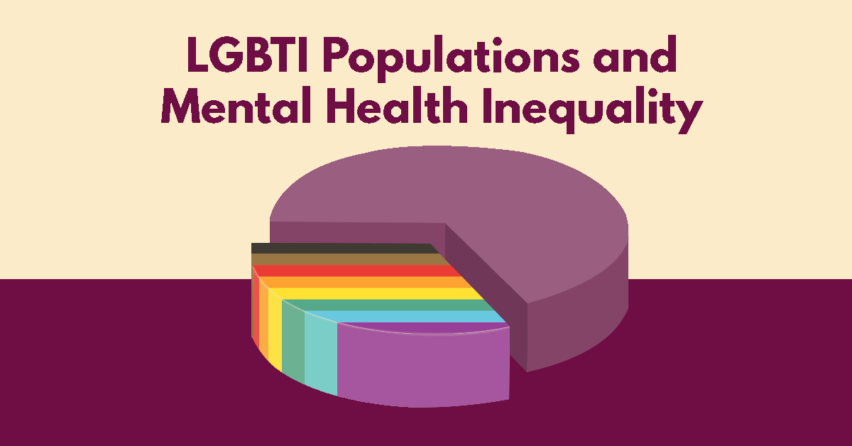LGBTI Populations and Mental Health Inequality
This is joint report pulling together the main research in relation to the mental health inequality experienced by LGBTI adults and young people, the key causes for these inequalities and makes recommendations for improving the mental health of LGBTI populations in a Scottish context.
This paper sets out the evidence on the significant mental health inequalities experienced by LGBTI people, the impact on individuals, and the actions that need to be taken to address this. It focuses principally on mental health problems including depression, stress and anxiety, on suicide and self-harm and on poor mental wellbeing; it does not focus on severe and enduring mental illnesses.
Whilst LGBT people also experience severe and enduring mental illnesses, evidence does not suggest that rates are higher in LGBT populations. It is critical that LGBT individuals experiencing mental health problems and severe mental illness are able to access effective support. Mental health and psychiatric services must be able to provide inclusive care and understand how an individual’s LGBT identity affects their life and experience.
It is worth being clear that the majority of the available evidence links this disproportionately high incidence of mental health problems to experiences of prejudice and minority stress. ‘Minority stress’ is a concept that was initially used to describe the prevalence of mental health problems for gay men but now is accepted as applicable to all LGBT people. This phrase recognises that LGBT people’s experiences of ‘stigma, prejudice, and discrimination create a hostile and stressful social environment that causes mental health problems’ and poor mental health is not an intrinsic part of being LGBT.
This report was developed in partnership with LGBT Health and Wellbeing, Scottish Trans Alliance, Equality Network, LGBT Youth Scotland and Stonewall Scotland.
Download file
